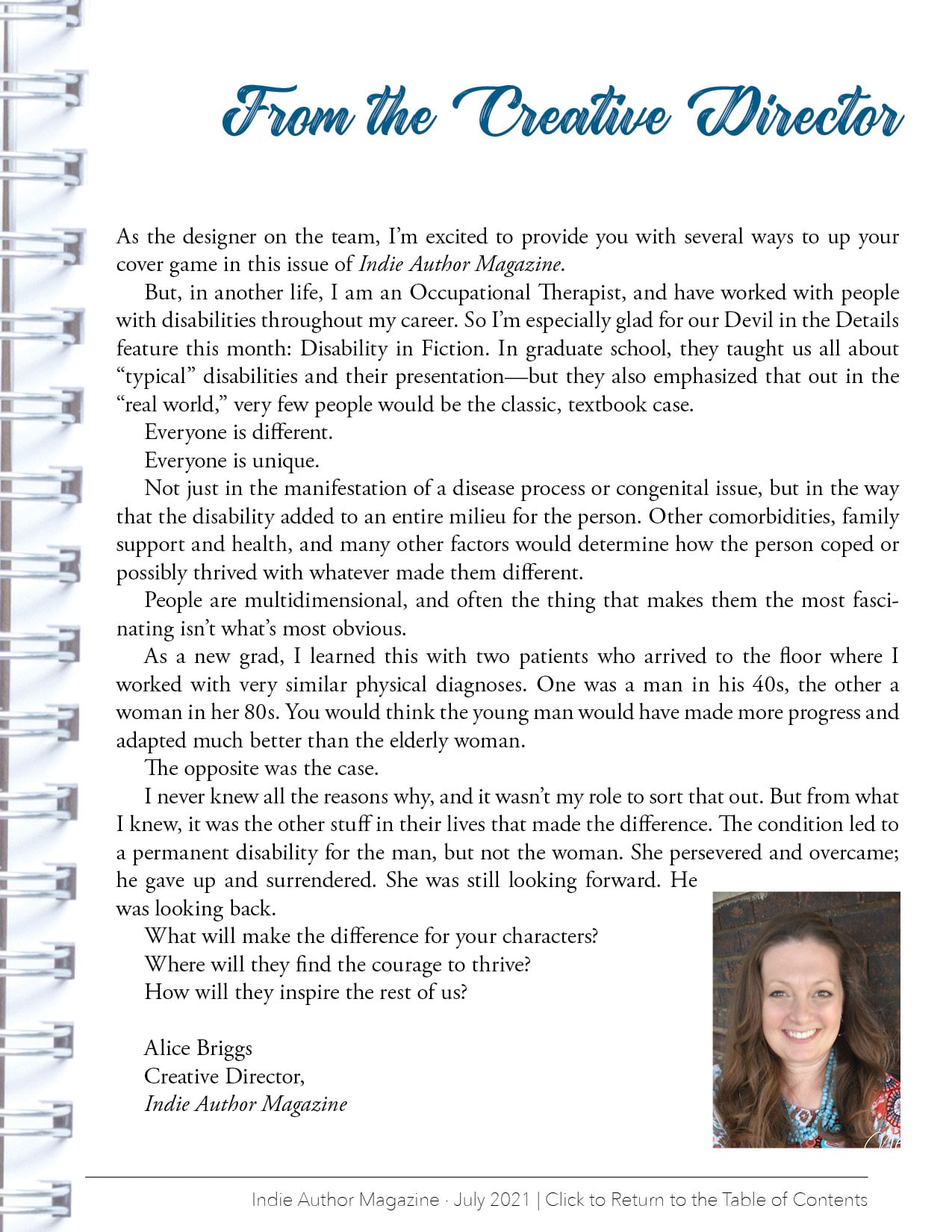As the designer on the team, I’m excited to provide you with several ways to up your cover game in this issue of Indie Author Magazine.
But, in another life, I am an Occupational Therapist, and have worked with people with disabilities throughout my career. So I’m especially glad for our Devil in the Details feature this month: Disability in Fiction. In graduate school, they taught us all about “typical” disabilities and their presentation—but they also emphasized that out in the “real world,” very few people would be the classic, textbook case.
Everyone is different.
Everyone is unique.
Not just in the manifestation of a disease process or congenital issue, but in the way that the disability added to an entire milieu for the person. Other comorbidities, family support and health, and many other factors would determine how the person coped or possibly thrived with whatever made them different.
People are multidimensional, and often the thing that makes them the most fascinating isn’t what’s most obvious.
As a new grad, I learned this with two patients who arrived to the floor where I worked with very similar physical diagnoses. One was a man in his 40s, the other a woman in her 80s. You would think the young man would have made more progress and adapted much better than the elderly woman.
The opposite was the case.
I never knew all the reasons why, and it wasn’t my role to sort that out. But from what I knew, it was the other stuff in their lives that made the difference. The condition led to a permanent disability for the man, but not the woman. She persevered and overcame; he gave up and surrendered. She was still looking forward. He was looking back.
What will make the difference for your characters?
Where will they find the courage to thrive?
How will they inspire the rest of us?

